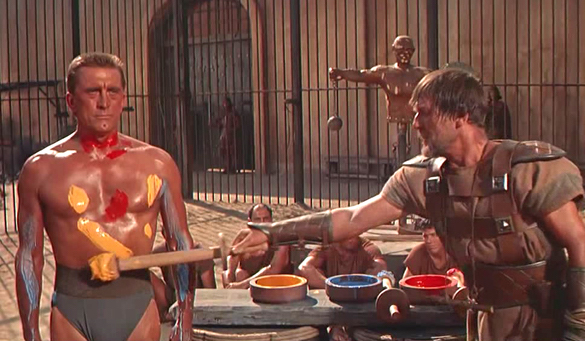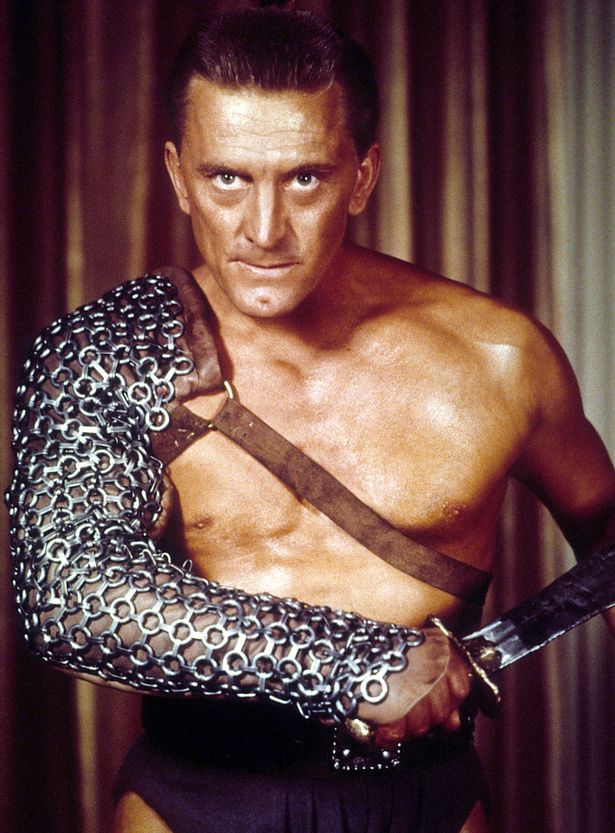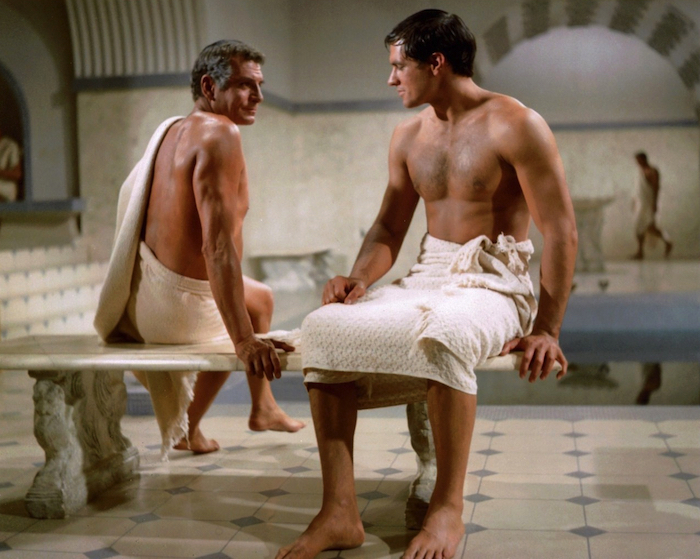Here's Eric to continue our mini Kirk Douglas fest. The actor turns 100 tomorrow

The story goes that Kirk Douglas was so disappointed that William Wyler didn’t cast him as the lead in 1959’s Ben-Hur that he optioned Howard Fast’s similarly-themed novel Spartacus for his chance to conquer the Roman Empire...
The list of people involved with this film includes one legend after the next: in addition to Douglas, the film was directed by Stanley Kubrick, written by Dalton Trumbo, and co-stars Laurence Olivier, Jean Simmons, Charles Laughton, Tony Curtis, and Peter Ustinov (who won the Oscar for Best Supporting Actor). Even the title credit design comes courtesy of Saul Bass.
One could see why Douglas shepherded this project for himself (he has an Executive Producer credit on the film). It’s the kind of heroic role that stars pursued back in those days: a put-upon slave who spends the entire movie (repeatedly) rallying other misfortunates to rise against the power system and fight. Douglas’ cleft chin has never been better lit or added more distinguished character to his face. In fact, sometimes that chin is more interesting to watch than the character Spartacus himself...

Spartacus has little complexity being purely good, valiant, and noble. We’re hurled back to a time when this is how stars wanted to see themselves, and probably how people wanted to see stars. There’s not much acting that’s required of Douglas in this movie, just a lot of executing plot mechanics with authority (which, admittedly, he has in spades).
Spartacus lacks the good cheesy fun of Ben-Hur and The Ten Commandments. But it all comes together in the final hour, when Olivier kicks into gear preserving the Great Roman Ideals. He’s both straightforward and a little hammy, and the picture needs more of that. The rest of the cast delivers with mixed results: Jean Simmons gives a breathy, silly, boring, and occasionally kinky performance as the heroine, and Tony Curtis looks confused throughout: he flees Olivier’s advances for buttsex and then starts performing magic acts for the other slaves. On the bright side, a preposterously hot John Gavin has an extended shirtless scene in a sauna that’s a visual highlight of the film though he's otherwise sadly underused. And in retrospect, if Ustinov’s Oscar seems a bit much, he does create a recognizably crafty human being, and finds some light comedy to play here and there.
 Sir Laurence and John Gavin in Spartacus (1960)
Sir Laurence and John Gavin in Spartacus (1960)
Spartacus was a big box office success and remains one of Kirk Douglas's most beloved films. There’s no doubt it’s big and it delivers in scope. But today, the fight choreography looks and feels like just that, the sets come across disappointingly fake (without even self-aware Hollywood sheen), and the secondary leads score the biggest points. For all of that Spartacus remains certainly a crystalline example of Douglas's star power in a hard-fought hero role in a genre (sword-and-sandal epic) that was soon to disappear.

More: Lust for Life, The Bad and the Beautiful, and 20,000 Leagues Under the Sea